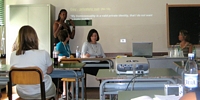|
|
 Acne (1,500) Acne (1,500)
 Addictions (1,500) Addictions (1,500)
 Advice (1,500) Advice (1,500)
 Allergies (1,092) Allergies (1,092)
 Alternative Medicine (1,500) Alternative Medicine (1,500)
 Anti Aging (1,500) Anti Aging (1,500)
 Breakup (1,500) Breakup (1,500)
 Cancer (1,499) Cancer (1,499)
 Dental Care (1,500) Dental Care (1,500)
 Disabilities (1,500) Disabilities (1,500)
 Divorce (1,500) Divorce (1,500)
 Elderly Care (1,498) Elderly Care (1,498)
 Goal Setting (1,500) Goal Setting (1,500)
 Hair Loss (1,500) Hair Loss (1,500)
 Health and Safety (1,497) Health and Safety (1,497)
 Hearing (1,500) Hearing (1,500)
 Law of Attraction (1,499) Law of Attraction (1,499)
 Marriage (1,500) Marriage (1,500)
 Medicine (1,497) Medicine (1,497)
 Meditation (1,499) Meditation (1,499)
 Men's Health (1,500) Men's Health (1,500)
 Mental Health (1,500) Mental Health (1,500)
 Motivational (1,500) Motivational (1,500)
 Nutrition (1,495) Nutrition (1,495)
 Personal Injury (1,499) Personal Injury (1,499)
 Plastic Surgeries (1,500) Plastic Surgeries (1,500)
 Pregnancy (1,496) Pregnancy (1,496)
 Psychology (1,500) Psychology (1,500)
 Public Speaking (1,500) Public Speaking (1,500)
 Quit Smoking (1,500) Quit Smoking (1,500)
 Religion (1,499) Religion (1,499)
 Self Help (1,500) Self Help (1,500)
 Skin Care (1,500) Skin Care (1,500)
 Sleep (1,500) Sleep (1,500)
 Stress Management (1,500) Stress Management (1,500)
 Teenagers (1,492) Teenagers (1,492)
 Time Management (1,500) Time Management (1,500)
 Weddings (1,500) Weddings (1,500)
 Wellness (1,500) Wellness (1,500)
 Women's Health (1,500) Women's Health (1,500)
 Women's Issues (1,500) Women's Issues (1,500)
|
1. Psycho educational programme
Objectives – to know more about stress
To learn more about what is stress, source, sign and symptoms of stress, impact of stress on health, performance and well-being.
Training involves usually lecture, may include psychometric measures and relaxation.
2. Stress inoculation training (SIT)
Objectives – build resilience and tolerance
SIT focuses multiple coping responses to resolve current problems as well as to ‘inoculate’ the person or group against future stress. Since maladaptive coping is often related to lack of preparation and surprise. SIT exposes individuals to milder stressors as a way to enhance their ability to cope with more severe life situations.
Training involves theoretical explanation, active (variety of) skill acquisition, application in real life and follow-up.
3. Cognitive behavioural training (CBT)
Objectives – minimize faulty, distorted thinking, attitude and behaviour
There is a reciprocal relationship between thinking (cognition), feeling (affective) and action (behaviour). CBT emphasizes the importance of changing our thinking, feeling and behaviour as a way to reducing symptoms and improving functioning and our well being.
Training involves identifying and modifying biased or distorted thought process, attitude and behaviour by using self- monitoring and cognitive restructuring etc.
4. Mindfulness training
Objectives – experience new relationship with mind-body instead of same old pattern
To teach people how to manage every day stress by observes the moment by moment sensation, cognition and emotions without judging whether they are bad or good. The core principle is non-judging, patience, trust, non-striving beginners mind, acceptance and letting go.
Training involves mindful breathing, body scan, mindful walking, mindful meditation and mindfulness of everyday activities.
5. Behavioural rehearsal
Objectives – teach specific skills
Specific procedure that aims at replaces deficient or inadequate responses by efficient and effective behavioural patterns.
Training involves modeling, role-playing, etc.
6. Anger management
Objectives – reduce impulsive unwanted anger
Aims at minimize anger frequency, intensity, duration and moderate anger expressions. Training involves understand and modifying cognition (thinking), arousal (feelings), behaviour (its outcome).
7. Anxiety management
Objectives – reduces discomfort and improve performance
To minimize anxiety, unwanted physiological arousal which result of faulty perception or learning.
Training involves relaxation, guided imagery, home work assignment and real life practice.
8. Communication skills training
Objectives – improving relationship and reduce conflict
To reduce inappropriate communication, conflict and maximize effective interpersonal communication, relationships.
Training focuses listening skill, assertiveness, and empathy skill etc.
9. Relaxation training
Objectives – minimize physical, physiological impact of stress
To reduce physiological manifestation of stress by teaching the person to become aware of muscle tension and to release that tension.
Progressive muscle relaxation- for example involves tensing and releasing various muscle groups until a deep relaxation state can be accomplished.
There are number of relaxation techniques such as autogenic, stretching, biofeedback, guided imagery, and meditation etc.
10. Modifying life-style
Objectives – mind – body and work life balance
Modification is necessary, if our present life style is not balanced and stressful. For example some of the followings are essential for everyone but many of us don’t do it at all.
Getting adequate sleep
Eat balanced diet regularly
Allot time for exercise and relaxation
Manage your goal, time effectively
Delegate duties
Spend time with your family, friends often
Give time, space for yourself alone every day
Two or more of the above stress coping skill training combination will be effective. Identify your source and specific needs then select your programme accordingly.
|
|
|



